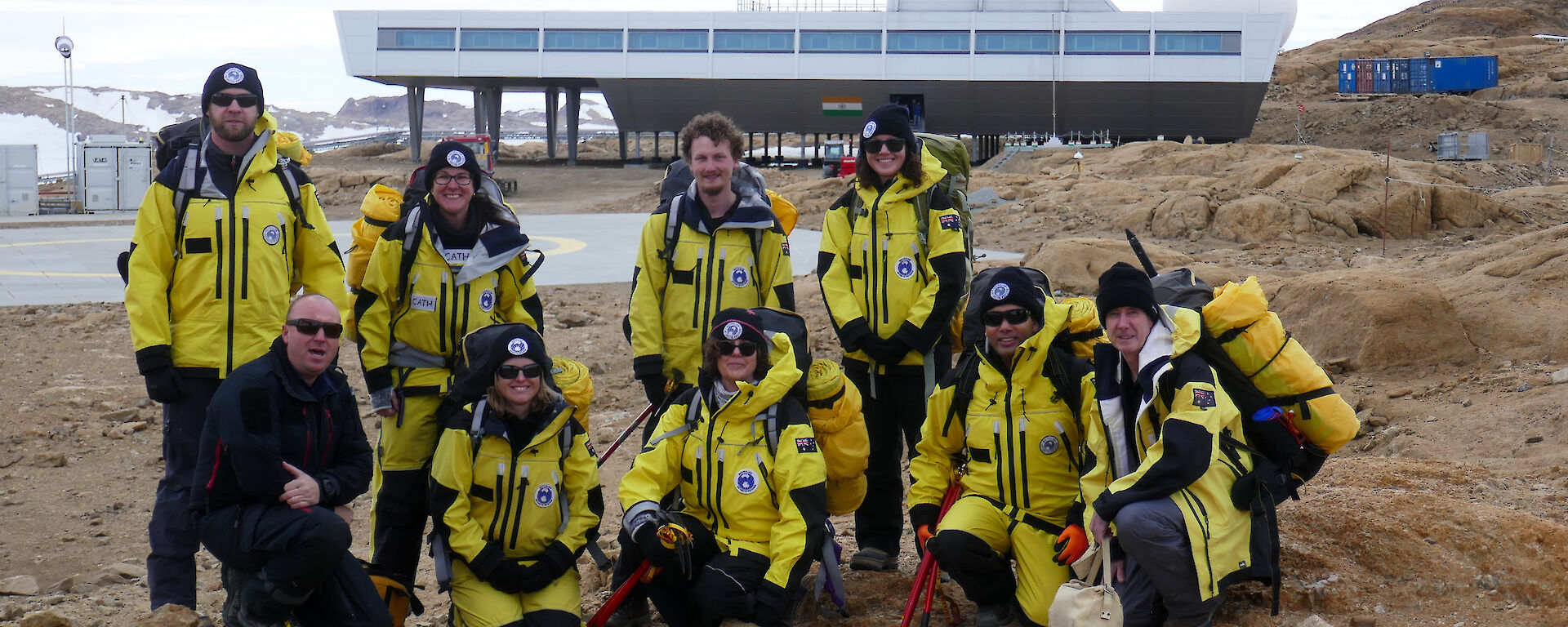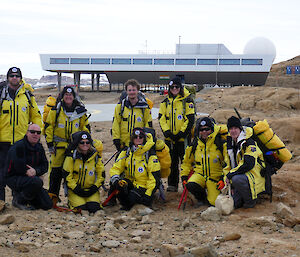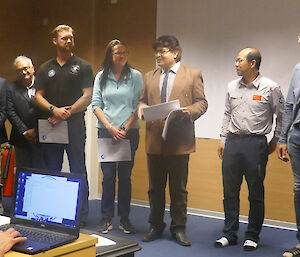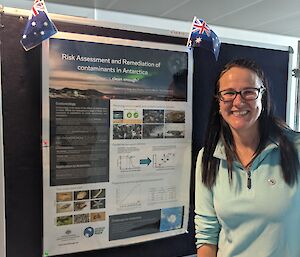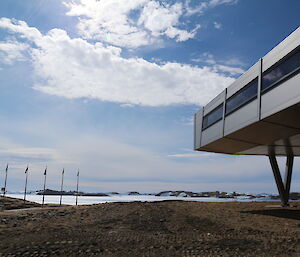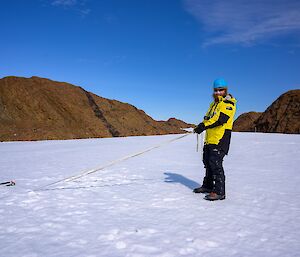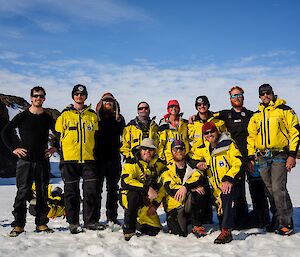Last Friday, India’s Bharati Station in the Larsemann Hills hosted the first East Antarctic International Conference on Antarctic Research (ICAR 2020). Scientists from Russia’s Progress station, China’s Zhongshan station, and Australia’s Davis station were invited to attend. The Australian delegation included: Station Leader David Knoff, Science Co-ordinator Cath King, and six scientists from Davis station, Dana Bergstrom, Daniel Dyer, Mike Hyde, Jay Chellappa (Australian Antarctic Division), Jodie Smith (Geoscience Australia) and Rachel McInerney (Bureau of Meteorology). The Australian delegation joined around 30–40 Indians, 4 Russians and 16 Chinese.
The idea for a science symposium with countries stationed in the Larsemann Hills was floated in late December 2019 by a Russian PhD student at Progress station and rapidly gained support from the Indian, Chinese and Russian Station Leaders. Australia was invited opportunistically during a visit by the Davis Station Leader, David Knoff, to Bharati back in December.
Opening addresses were given by the Indian Station Leader, the Director of India’s National Centre for Polar and Ocean Research (NCPOR) and the Director of the Indian Antarctic Program, the latter two who were “in town” at the time on the resupply and science voyage. Cath then gave an overview of the Australian Antarctic science program, highlighting this seasons main science projects in East Antarctica and our approach to environmental management. With presentations and posters from all four nations, the conference was aimed at sharing information about science activities with other nations active in the East Antarctic, in particular in the Larsemann Hills region.
After a delicious traditional curry lunch, Australian participants were escorted on a tour of the Bharati laboratories and meteorological office where they had a chance to interact and converse with their scientific counterparts from India. The resupply vessel Vasiliy Golovnin was in harbour at the time, having arrived two days prior to the conference, and provided a scenic backdrop to the station, which is essentially all housed within a single building. An enjoyable and informative day was had by all who attended.
PS - We were amazed to see that India had adopted our Australian Antarctic Division boot cleaning contraptions!
